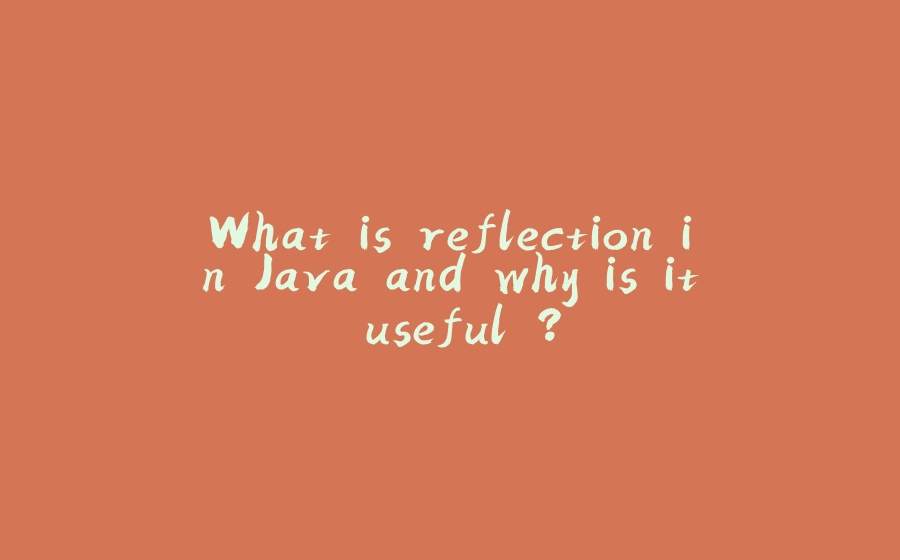Java (9 Part Series)
1 What is reflection in Java and why is it useful ?
2 Is Java “pass-by-reference” or “pass-by-value” ?
… 5 more parts…
3 How NullPointerException can be avoided in Java
4 What are the differences between a HashMap and a hash table in Java ?
5 Why is char[] preferred over String for passwords in Java ?
6 When to use LinkedList over ArrayList in Java ?
7 How do I convert a String to an int in Java ?
8 What are sealed classes in Java ?
9 10 Java Frameworks & Libraries
In Java, reflection is the ability of a program to examine, introspect, and modify itself at runtime. This is achieved through the use of the Java Reflection API, which allows a program to access its own class, method, and field definitions, as well as to invoke methods and access fields at runtime.
Reflection in Java is useful for a number of reasons. For example, it can be used to implement features such as object serialization, where objects can be converted to and from a string representation. It can also be used for debugging and testing, since it allows a program to inspect and modify its own behavior at runtime. Additionally, reflection can be used to implement dynamic loading of classes, where classes can be loaded and instantiated at runtime, rather than at compile time. This can make a program more flexible and adaptable, since new classes can be added without the need to recompile the entire program.
Java (9 Part Series)
1 What is reflection in Java and why is it useful ?
2 Is Java “pass-by-reference” or “pass-by-value” ?
… 5 more parts…
3 How NullPointerException can be avoided in Java
4 What are the differences between a HashMap and a hash table in Java ?
5 Why is char[] preferred over String for passwords in Java ?
6 When to use LinkedList over ArrayList in Java ?
7 How do I convert a String to an int in Java ?
8 What are sealed classes in Java ?
9 10 Java Frameworks & Libraries


























暂无评论内容